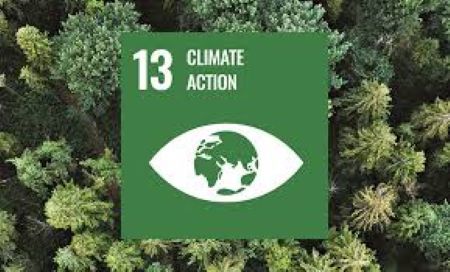Organizers of the Climate Equity Project have urged stronger collaboration among governments, civil society organizations (CSOs) and community actors to address the growing impacts of climate change across Nigeria.
This call was made during the Climate Equity Validation Session held on Wednesday in Ibadan.
The project, implemented by NETHOPE, the Youth in Agroecology and Restoration Network (YARN), and Ushahidi, aims to amplify the voices of vulnerable communities in Oyo, Osun, and Ondo States.
Implementation Manager at Ushahidi, Ms. Rhoda Omenya, said the participation of government officials at the validation meeting was a positive indication that the findings would inform climate adaptation strategies.
“I’m very glad that we had government representatives in the session, which means they agreed with the data outputs. Once the final report is compiled, we hope to present it to them to strengthen their adaptation and mitigation strategies. I’m hoping this informs climate action policies in the three states and even nationally,” she said.
YARN representative, Mr. Seyi Olawuyi, said the project exposed the scale of neglect in rural and riverine communities where residents had repeatedly appealed for government support.
He said the data showed that many communities urgently needed intervention.
“We realised that government presence does not reach many of these areas. Flooding is a common problem across Oyo, Osun and Ondo States. People complain about excessive rainfall and the lack of functional drainage systems. We are urging the government to do more by providing proper drainage and strengthening infrastructure,” he said.
Olawuyi added that CSOs, government agencies and community leaders must work together to drive awareness and sensitisation efforts.
“None of us can do it alone. There must be synergy among stakeholders to provide sustainable solutions,” he said.
Climate Intersections Project Coordinator at NETHOPE, Mrs. Aminat Adebayo, said the initiative aligns with the organisation’s climate equity pillar, which seeks to integrate community voices into climate policy.
“Nigeria is clearly vulnerable to climate impacts. Farmers and community members may not call it climate change, but they know rainfall patterns have shifted and weather conditions are no longer stable,” she said.
Adebayo noted that earlier projects in Uganda showed that climate impacts such as flooding and drought can trigger secondary crises, including gender-based violence, a reality that also informs their work in Nigeria.
She highlighted a significant disconnect between global climate discourse and local implementation.
“Government involvement is still limited, especially in enforcing policies that address these challenges,” she said.
According to her, participants agreed that collaboration among government entities, CSOs and community-based groups is central to tackling Nigeria’s climate challenges.
“People are aware and ready to make changes, but the support system must work,” she said.
She added that the Climate Equity Project’s final report would guide climate adaptation and mitigation programming across the three states and support broader national climate-action planning.
The project’s findings highlight recurring climate concerns, particularly flooding, excessive rainfall, poor drainage, and limited government presence in the most affected communities.


